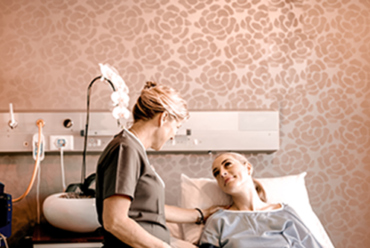Recovery
Each plastic surgery procedure is different, which means recovery time differs too. Some procedures need a longer recovery time than others and you may have to follow certain guidelines closely during your recovery, depending on your surgery. The full details of your recovery will be discussed with you at length during your consultations.
Following these guidelines will ensure you are fully prepared for your surgery. Things you need to know include; What to expect before your surgery, What to arrange on the day, and What your recovery will entail.
What Should You Pack?
- Any medicine you are currently taking
- Basic toiletries
- ID document/passport
- Loose clothing with buttons or zippers
- Slippers and a light dressing gown
- Sunglasses and a scarf for facial surgery
Payment as per your quotation may be made before surgery by EFT (please email proof of payment) or by credit card as per arrangement with the surgical booking department. If you are intending to pay by any other means, please ensure that this is cleared with our surgical booking department before surgery.
What Shouldn't You Pack?
- If possible, leave valuables at home
- No weapons of any description are allowed
- No smoking is permitted in the Renaissance Institute
What Do You Need To Do On The Day?
For certain procedures, you’re going to be placed under general anaesthetic or intravenous sedation. In these cases, please note that you may not drink or eat 6 to 8 hours before your surgery. Additionally, driving should be avoided for 24 hours after your procedure, so you need to ensure that you have arranged a transfer from the clinic.
Lastly, wash with the medicated soap or a Betadine wash provided and avoid putting on any make-up on the day.
Are There Any Risks Involved?
Each surgery requires specific post-operative care and you will be provided with all the information relevant to your procedure/s.
Here are some general pointers that can help every patient through the early post-op days as comfortably as possible:
- Bruising generally takes 2 to 3 weeks to settle.
- Don’t expect to see results immediately. Some results may take months to become evident.
- Pain and discomfort are at their peak during the first 2 to 3 days following surgery so plan for total rest during these days.
- Some patients may feel depressed for a day or two post-surgery, this is quite normal.
- Swelling is at its peak for the first 3 to 4 days and usually resolves over the subsequent 2 to 3 weeks, depending on the procedure.
- You will be comfortable taking regular pain medications. Don’t use any pain medication that is not prescribed by your surgeon. If you feel the need to take anti-inflammatories you must clear this with your doctor first.
- Ice packs and compressors can alleviate much of the swelling and discomfort you’ll experience.
- Recovery to the face and neck area can be greatly assisted by keeping your head elevated for 2 or 3 days after surgery. If you fail to carry out this simple procedure you could, in fact, prolong the recovery process and may even cause an adverse effect on the results.
- Make sure you check with your doctor on how soon you may bath, shower, wash your hair, etc.
- Don’t return to work or take on heavy tasks sooner than advised by your doctor.
- Check when you will be able to drive again; this will also be dependent on the pain medication you are taking.
- Don’t start exercising too soon, even if you feel able to.
- Exposure to the sun after surgery can be very detrimental, so keep in the shade and use a sunblock with a minimum SPF of 15.
- There are many alternative therapies that can enhance the recovery process while making you feel better emotionally. Some doctors will recommend practitioners, but always check with your surgeon first and only make use of registered practitioners.
Preventing Deep Vein Thrombosis (DVT)
The risk of developing DVT is increased if you are having prolonged surgery (4 hours or longer), or if the surgery you’re undergoing prevents early mobilization or you have a previous history of blood clotting.
There are, however, some things you can do to prevent DVT, including:
- Discontinue oral contraceptives
- Stop smoking
- Try to achieve optimal weight
- Drink enough water and stay away from alcohol
- Move your legs and walk around to improve leg circulation
If you experience any lower leg swelling or pain post-op, contact us immediately.
Thromboembolic Disease
Prolonged immobility on a long-haul flight and sitting with bent legs with compression of the back of the knees by the front edge of the seat can obstruct the flow of blood in the leg veins. This may initiate the process of thrombosis (clotting) of the leg veins resulting in their blockage.
How Can it Be Avoided?
Predisposing factors should be modified, such as the discontinuation of taking oral contraceptives, quitting smoking, and attempting to achieve your optimal weight.
You should also take the following precautions during a flight:
You should purchase and use full-length Anti-Embolism (TED/DVT) stockings for the duration of your flight to use both during and after surgery.
- Drink a lot of water and stay away from alcohol as this dehydrates your system
- Take along your own bottled water
- Walk around as often as possible during your flight to keep your blood circulation going (get an aisle seat)
- Avoid sleeping tablets as they result in prolonged periods of immobility
- While you are in your seat, alternately contract and relax different muscle groups, especially those of the lower legs, this helps the blood flow in your legs
When you arrive in Cape Town, we recommend taking a good walk as soon as possible after your arrival to assist the circulation in your legs.
More About
The Recovery Process

Preparing for your Surgery

Where do I go – Post Surgery Accommodation

